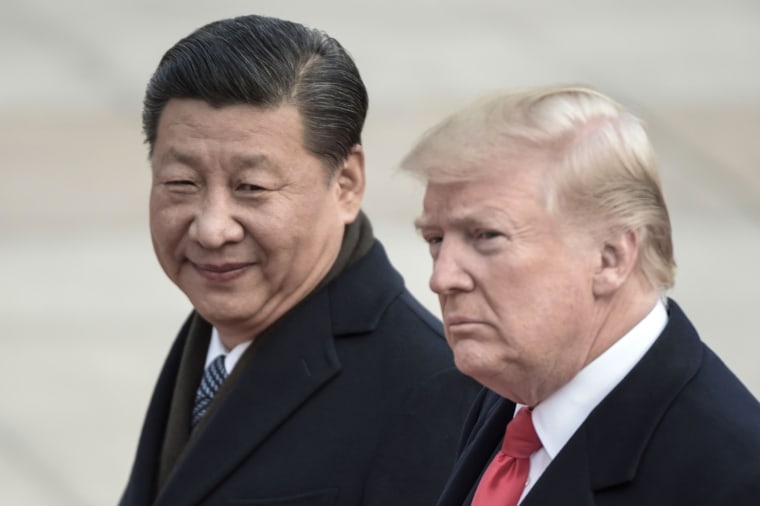For all intents and purposes, practically everything Donald Trump said about Joe Biden in his Republican National Convention address was false, incomplete, misleading, or some combination thereof. There was, however, one line in the presidential address that was sort of true, but in need of additional context.
"China supports Joe Biden and it desperately wants him to win. I can tell you that upon very good information."
It was amusing to hear Trump suggest he has access to secret information that confirms Beijing's preference in the U.S. presidential election, when it's a detail that's already been widely and publicly reported. In fact, it was just two weeks ago when William Evanina, the director of the U.S. National Counterintelligence and Security Center, released a statement on foreign interest in the 2020 cycle, confirming China's desire to see Trump lose.
And for Trump and a variety of other RNC speakers, this was proof that Beijing sees the Republican incumbent as too tough, while seeing Biden as some kind of communist-sympathizing ally.
Reality tells a different kind of story, so let's flesh this out a bit.
First, U.S. intelligence estimates point to China's interest in the U.S. election as passive: Beijing would like Trump to lose, but China isn't actually doing anything specific to bring about such a result. It makes the country's interest far less menacing than Republicans tend to pretend.
Second, those same U.S. intelligence estimates point to Russia taking active and deliberate steps to interfere in our election and ensure Trump remains in power. For some reason, the Republican president and his allies seem to consistently overlook this detail. I wonder why.
And third, it's worth appreciating why China would like to see Trump lose. According to the National Counterintelligence and Security Center assessment, Beijing sees the incumbent American president as "unpredictable," which drives China's preference for new White House leadership.
This is consistent with the public reporting we've seen for years. Annie Lowery wrote for The Atlantic in 2018, for example, that Chinese trade negotiators were "confused" by the Trump administration and its position: "American officials raise issues only to later drop them. They contradict one another. The ideological warfare within the White House, as well as the lack of experience on the international economic team, has left China and others unsure of U.S. policy, or even its goals."
As regular readers may recall, in some occasions, China has been publicly explicit on this point. Cui Tiankai, the Chinese ambassador to the United States, spoke a couple of years ago to Fox News' Chris Wallace, who asked the diplomat, "Are you clear who President Trump listens to on trade issues, whether it's moderates like Kudlow and Mnuchin or hard-liners like Navarro?"
Cui responded, "You tell me.... Honestly, I've been talking to ambassadors of other countries in Washington, D.C., and this is also part of their problem. They don't know who is the final decision-maker. Of course, presumably the president will take the final decision. But who is playing what role? Sometimes, it could be very confusing."
Politico also had a good piece along these lines, noting that Beijing is "increasingly mystified about what Trump really wants," convinced that the administration doesn't really have a strategy.
"We appeal our American interlocutors to be credible and consistent," Li Kexin, minister at the Chinese embassy in Washington, said in a 2018 speech -- suggesting China sees Team Trump's posture as neither credible nor consistent.
In other words, China prefers Biden, not because he's a communist or because Trump's so impressive, but because Beijing has come to see the Republican administration's erratic incompetence as being detrimental to everyone.
Trump seems to think this reflects well on him. It does not.
Postscript: On "Meet the Press" two weeks ago, NBC News' Chuck Todd made a distinction between Russian efforts to help Trump and Chinese interest in seeing Trump lose. White House National Security Advisor Robert O'Brien suggested there's "sensitive intelligence" that China isn't simply taking a passive approach.
He wouldn't elaborate, and given the fact that his claim seemed to be at odds with the intelligence assessment released by the National Counterintelligence and Security Center, it's difficult to accept his argument at face value.
